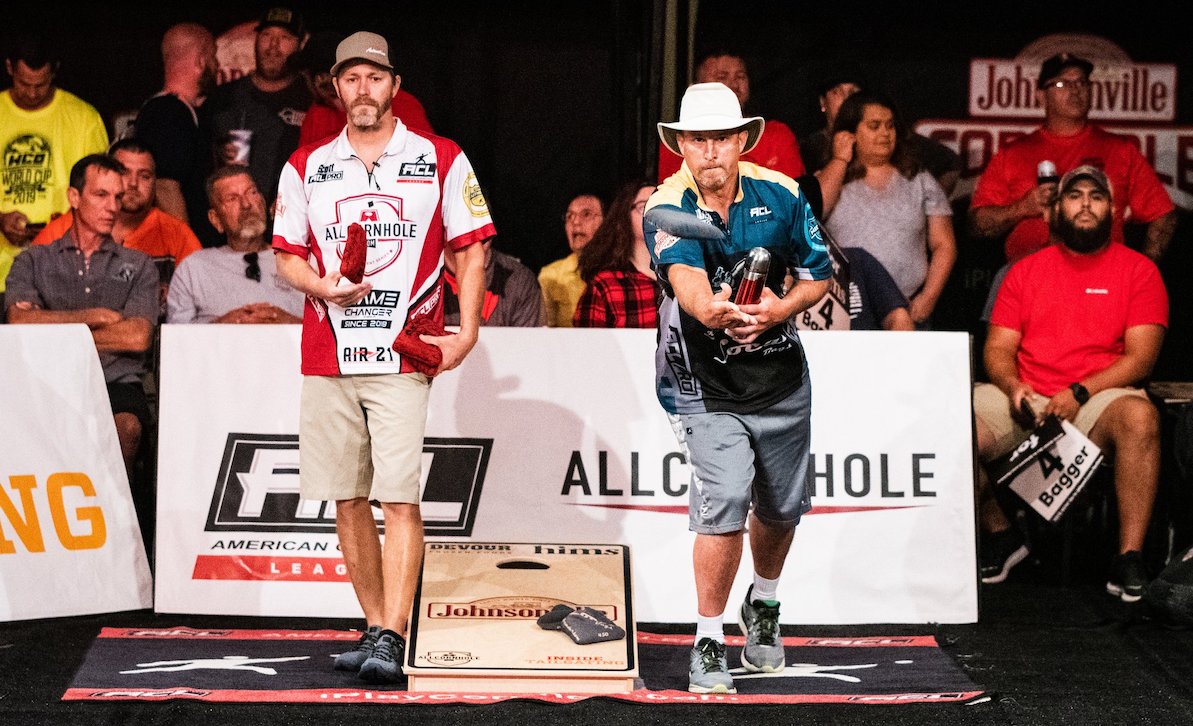The American Cornhole League was primed and ready to start the second of its four national events in Cleveland on March 13.
The event had sold out in an hour, with 1,200 players – and more than 700 on a waitlist – set to play on 175 cornhole sets at the Huntington Convention Center.
But as the broader sports industry shut down that week, so too did professional cornhole.
For a burgeoning league, the impact was amplified. ACL’s national events are broadcast on ESPN, meaning the cancellation left it without one of its tentpole exposure opportunities.
“That was really disappointing,” ACL commissioner Stacey Moore said. “Certainly a tough one to swallow, it’s a big hit. We don’t know what the final hit will be, but we are fortunate in that we will be able to make up the broadcast obligations.”
Moore is optimistic the cornhole league, which has 60,000 registered players across the country at four different skill levels, can make it through the coronavirus outbreak stronger. While the league had to cancel its third national event in May, he has hopes the fourth, scheduled for July 4, will still take place.
In the meantime, there are plans to make up the two missed nationals with seven smaller pro qualifier events. Those would be restricted to 50 players and could be played while maintaining social distancing rules.
“If we need to play them without fans and with social distancing, we can,” Moore said. “You can play the sport within those guidelines.”
Also, playable within social distancing guidelines is its training tool, ACL Virtual, which uses the ACL Bag Tracker training mechanism allowing players to play against themselves or another person over Facebook Live. While it does take out some of the strategic elements of the game that come with playing against an opponent in real life, like opponent’s bags on the board, it’s an adequate scorekeeping tool that allows for competitions to go on.
READ MORE: Marble Racing League Shoots Ahead During Global Sports Hiatus
“We can now create brackets and competitions out of [ACL Virtual] where people can win real money,” Moore said. “The local leagues are used to going to bars for once-a-week events, but here’s a way to stay engaged with players and directors so they can run them for their players and tie back into the points system.”
Moore said the league would let players and leagues decide if they want to continue the virtual components once the world normalizes, but there have been benefits already. He said international interest is seeing an uptick since players from Canada and Germany can play against U.S. counterparts.
The virtual competitions still require an entry fee – the large driver of how the league makes money. Winners make a percentage with directors and the ACL making the net difference. Moore said he doesn’t have “wild revenue projections” from the ACL Virtual but does believe it could have long-term benefits, including a less intimidating way for players to get involved in the points system.
“We have the scalability for as many people who want to play, unlike the capacity we’re constrained by with live events,” Moore said. “We have five different skill levels, and you start at the bottom and work up, this is a way for people who might be intimidated to become part of our community.”
The American Cornhole League has grown significantly in its first three years, with 1,125 events in 2016-17 to more than 10,100 in 2018-19. Those events were a mixture of local, regional, conference and nationals.
However, this virtual aspect provides the ACL with endless opportunities, Moore said.
Along with users, during the virtual tour, creating a bundle of content with their Facebook Live streams, Moore said the rest of the company’s content viewership is also growing.
READ MORE: Drone Racing League Joins FanDuel as Fans Clamor for Live Event Betting
March was the league’s best month ever on Instagram and Facebook, with 5.5 million and 58 million impressions, respectively. Now with a lack of live sports content, ESPN has also been replaying cornhole events.
“We are looking to increase our content output, get more original programming out there to the public,” Moore said. “And we’re hoping to be one of the first sports back out with a legitimate professional event.”

![[Subscription Customers Only] Jul 13, 2025; East Rutherford, New Jersey, USA; Chelsea FC midfielder Cole Palmer (10) celebrates winning the final of the 2025 FIFA Club World Cup at MetLife Stadium](https://frontofficesports.com/wp-content/uploads/2026/02/USATSI_26636703-scaled-e1770932227605.jpg?quality=100&w=1024)














